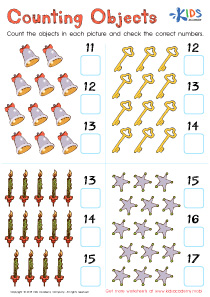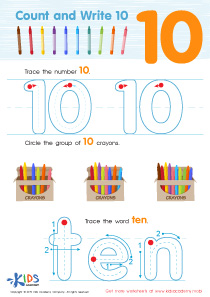Number Recognition Normal Numbers 0–10 Worksheets for Ages 3-9
22 filtered results
-
From - To
Welcome to our "Number Recognition Normal Numbers 0–10 Worksheets" page, perfect for children ages 3-9. These engaging, colorful worksheets are designed to help young learners recognize and understand numbers from 0 to 10. Each worksheet includes fun and interactive activities that make learning math enjoyable and effective. Your child will practice counting, tracing, matching, and identifying numbers through a variety of exercises tailored to their developmental level. These worksheets not only build foundational math skills but also boost confidence and foster a love for learning. Explore our collection to support your child's math journey today!
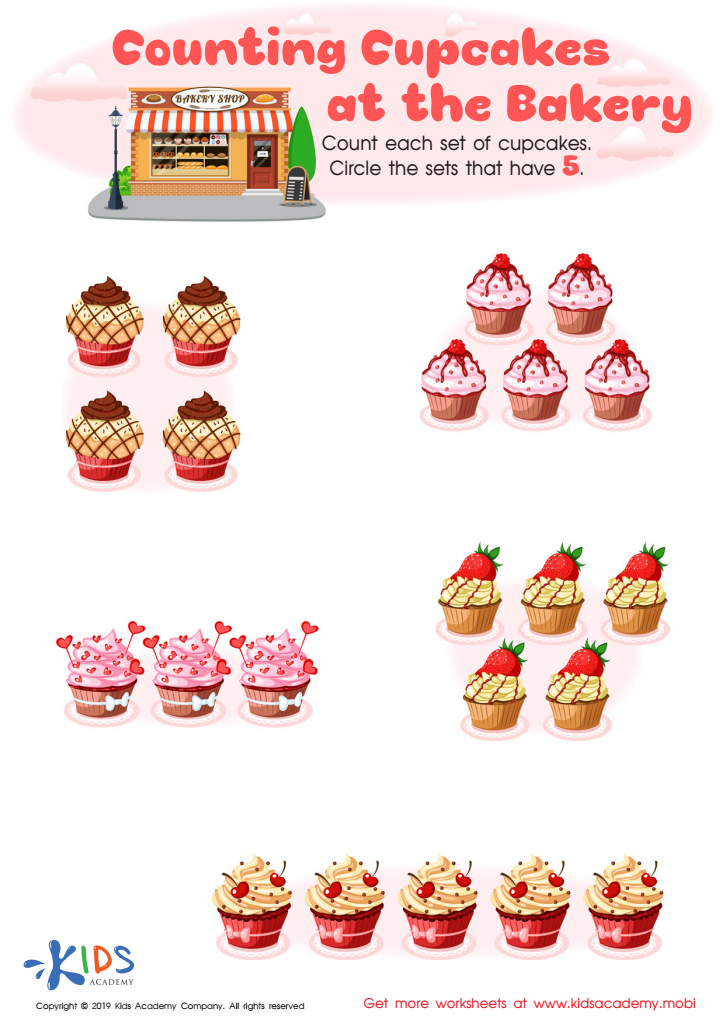

Counting Cupcakes Worksheet
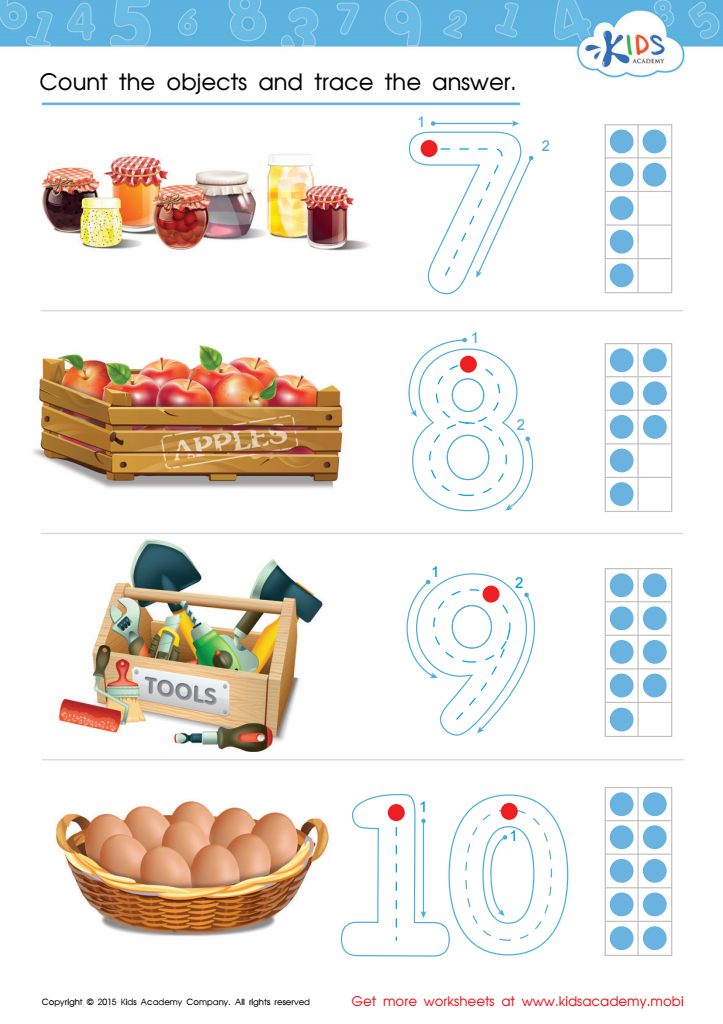

Count and Trace 7 – 10 Worksheet
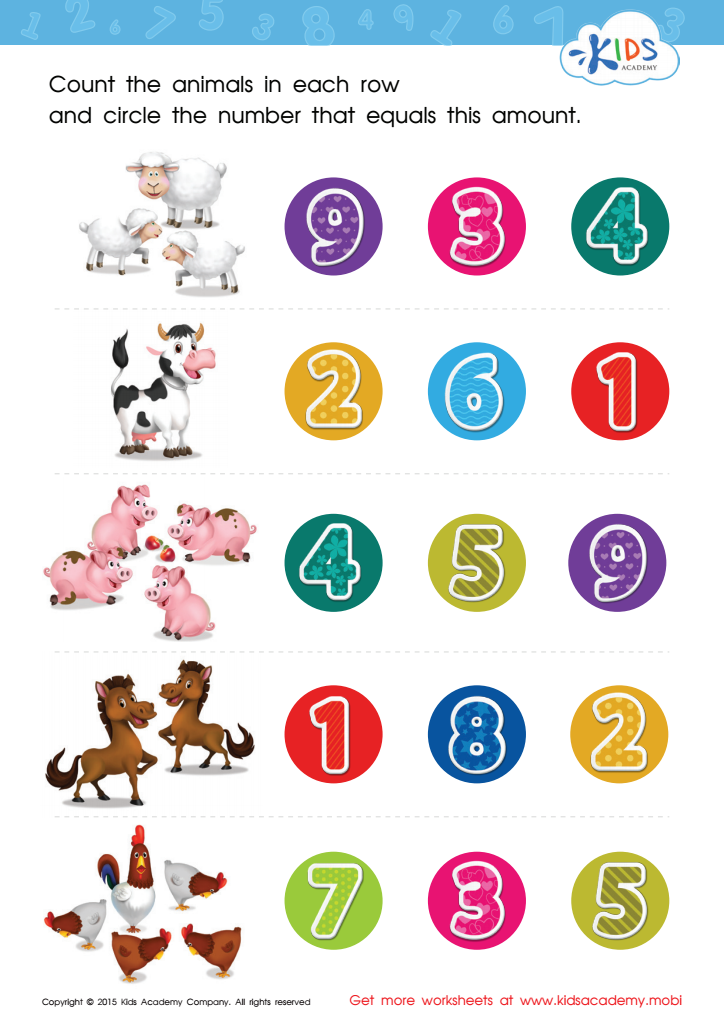

Count and Match 1 – 5 Math Worksheet
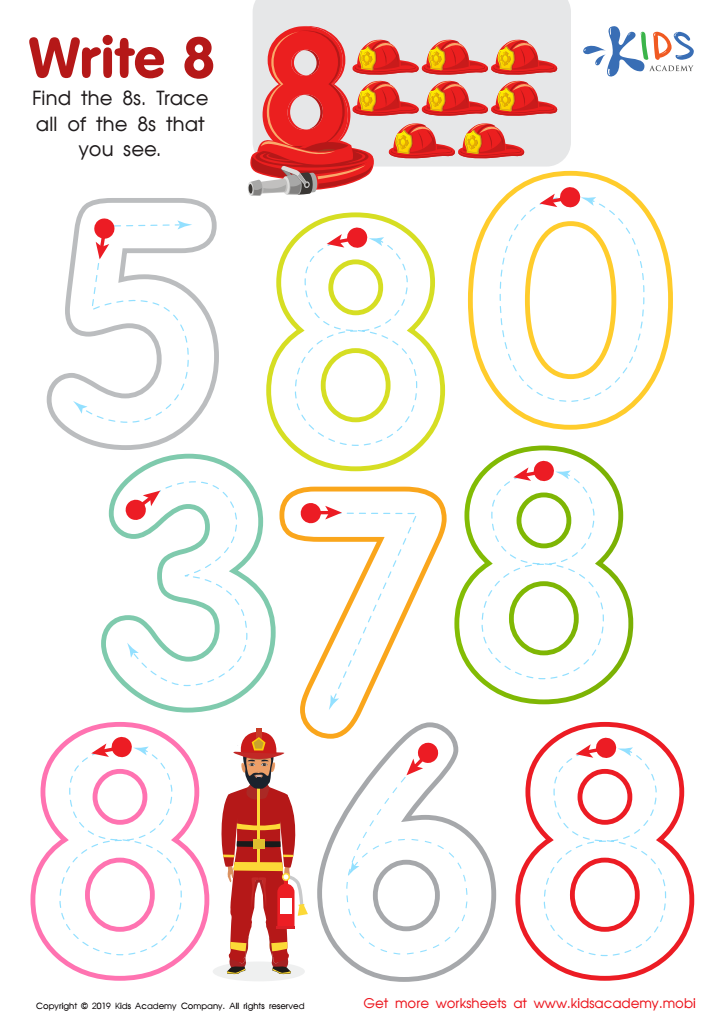

Write 8 Worksheet
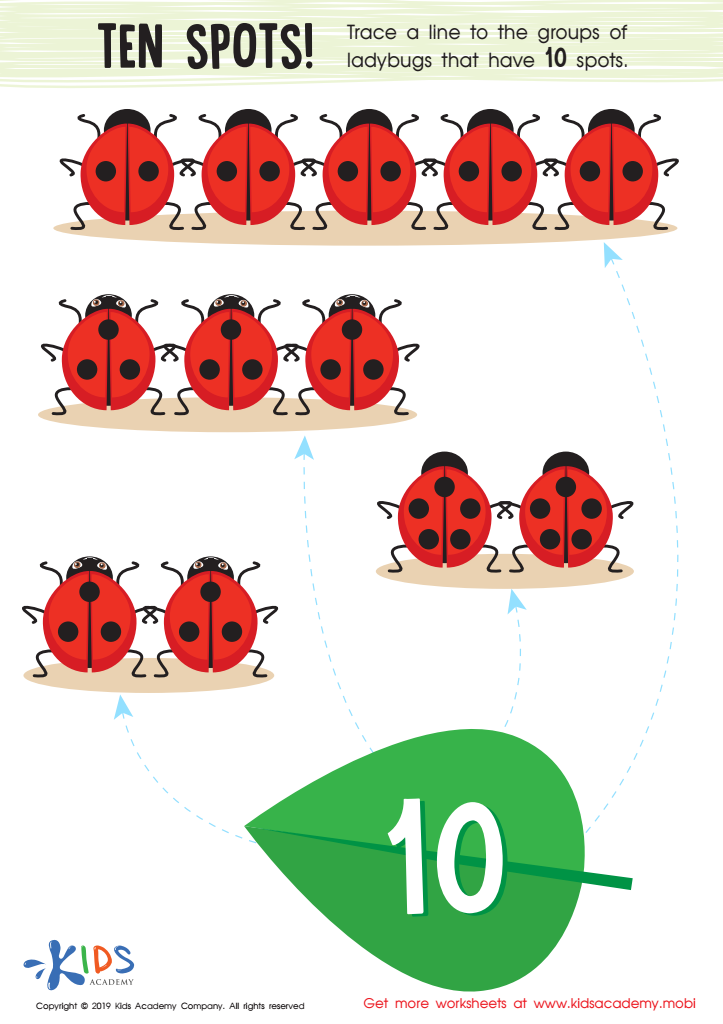

Ten Spots Worksheet
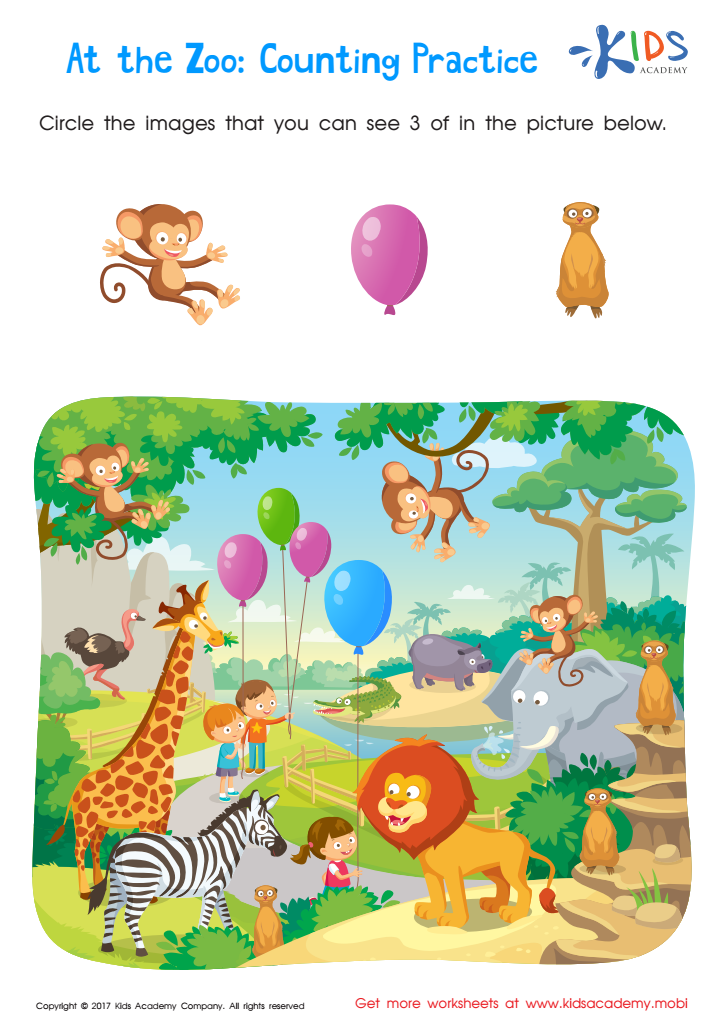

At the Zoo: Counting Practice Worksheet
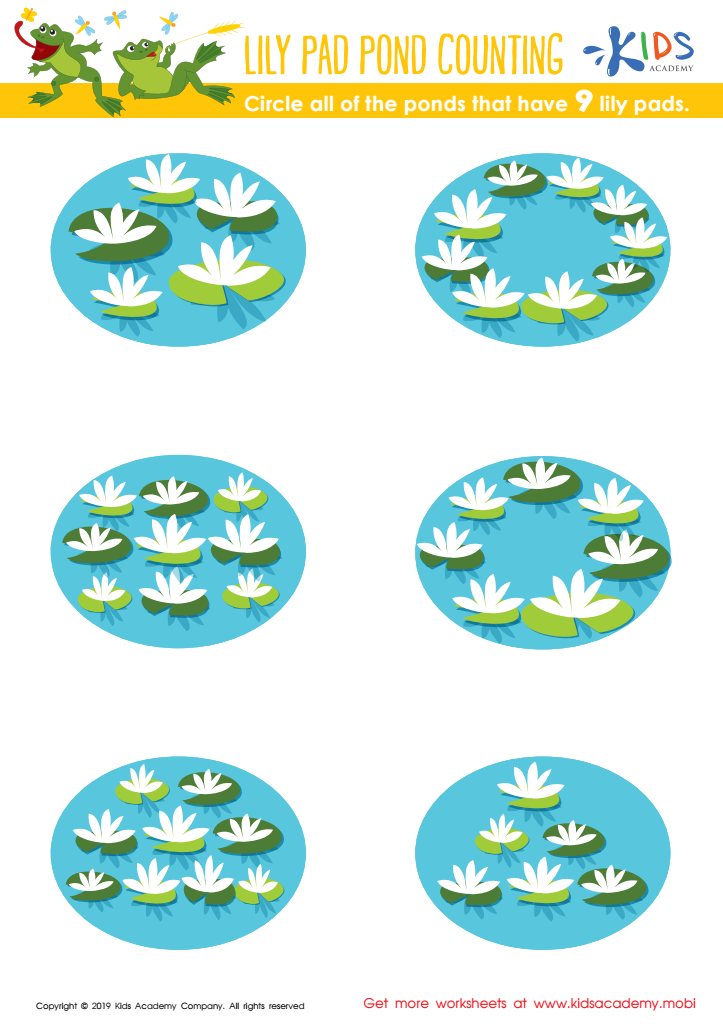

Lily Pad Pond Counting Worksheet
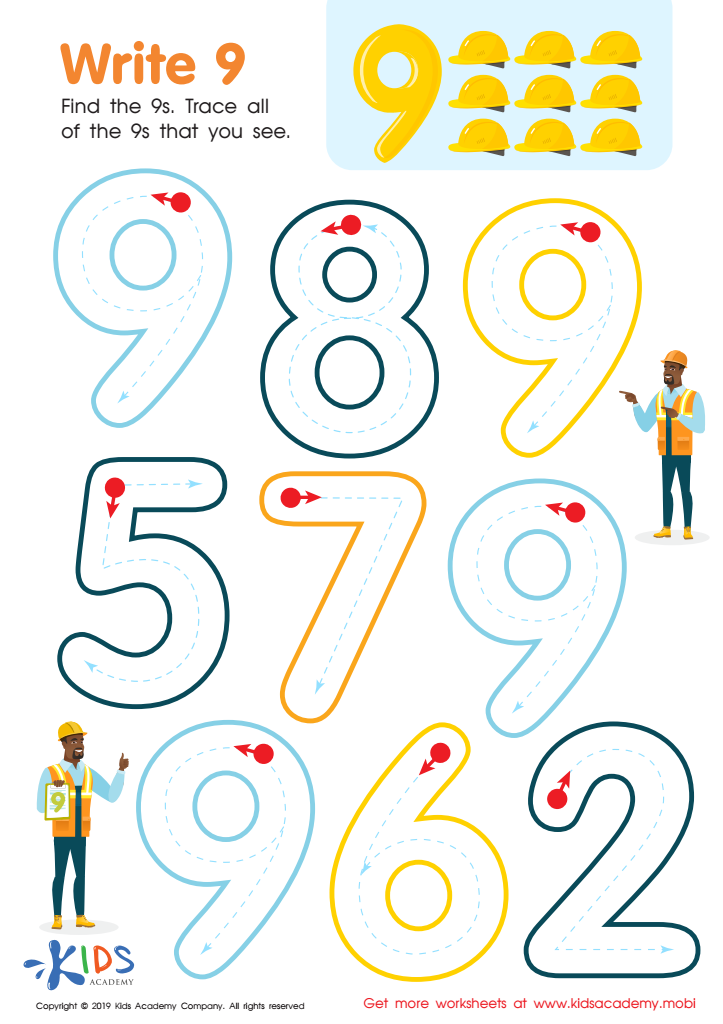

Write 9 Worksheet
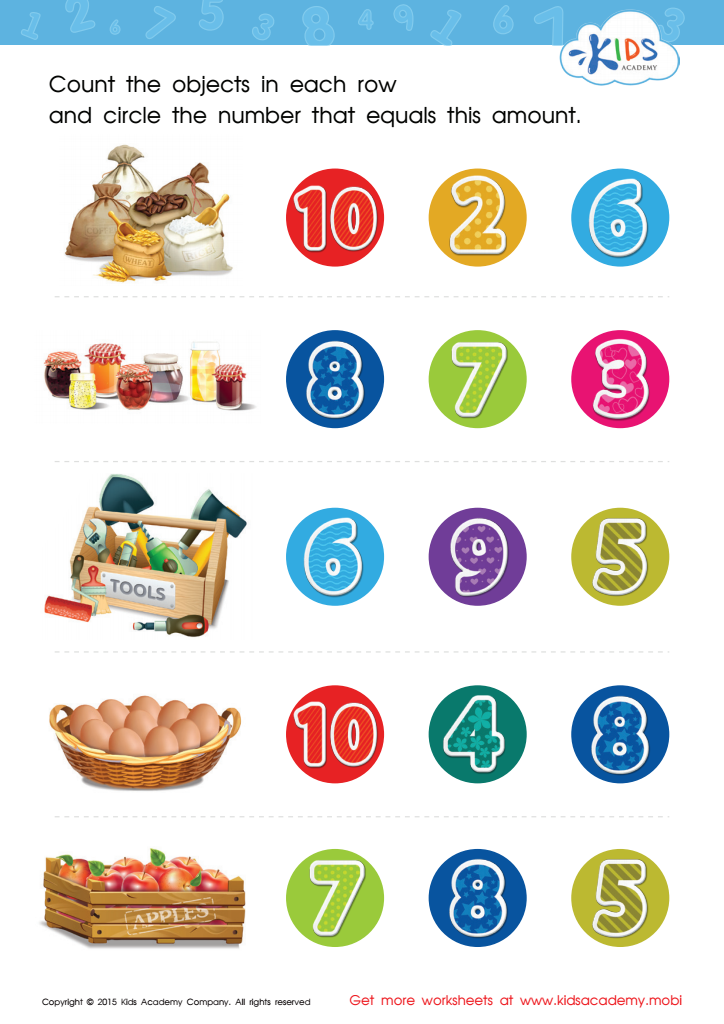

Count and Match 6 – 10 Math Worksheet
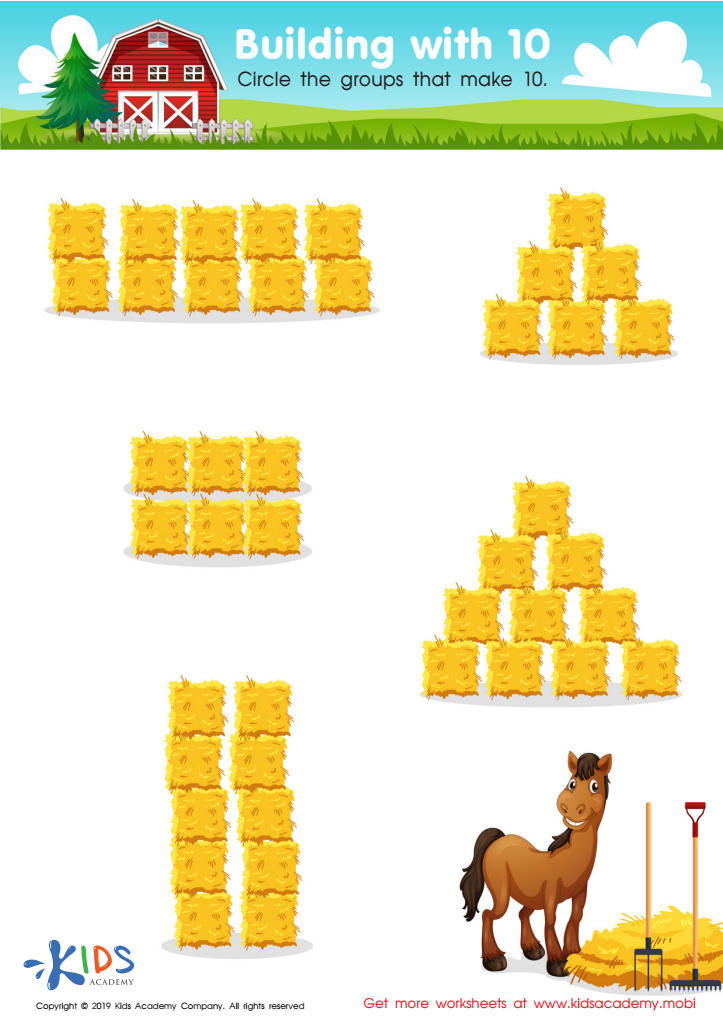

Building with 10 Worksheet
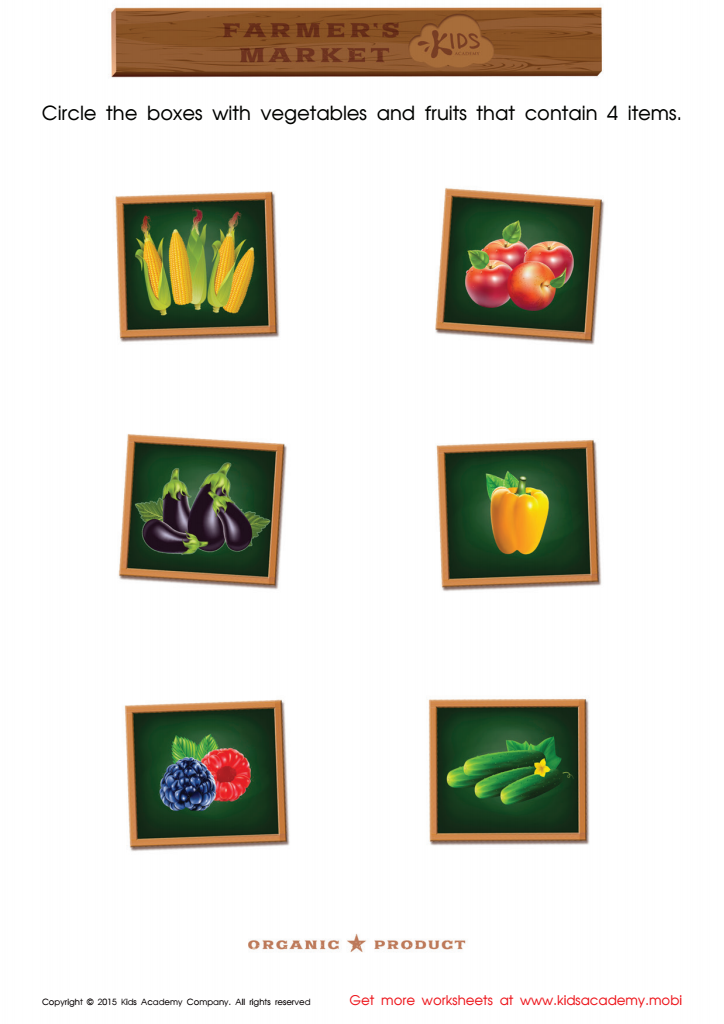

Count and Match Vegetables 2 – 8 Math Worksheet
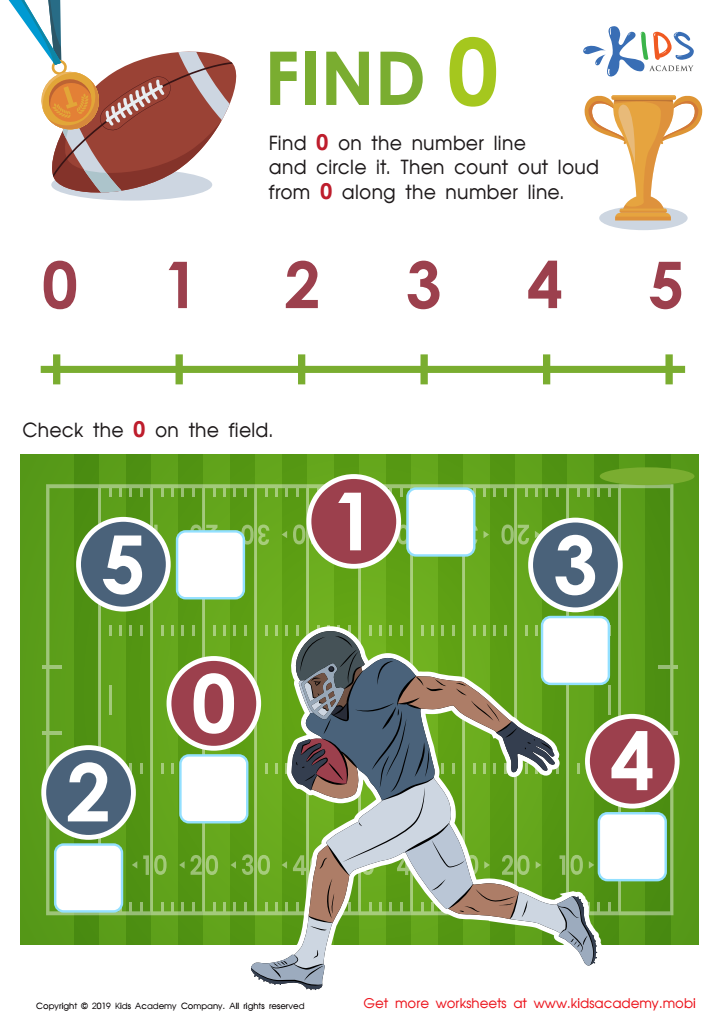

Find 0 Worksheet


Frog Countdown Worksheet
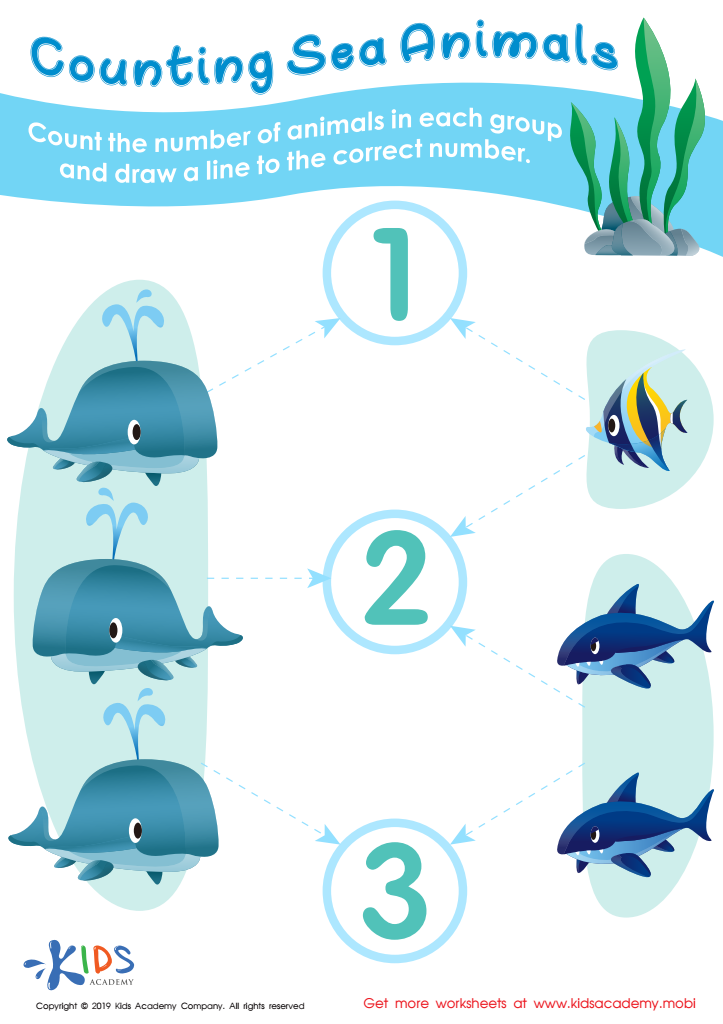

Counting Sea Animals Worksheet
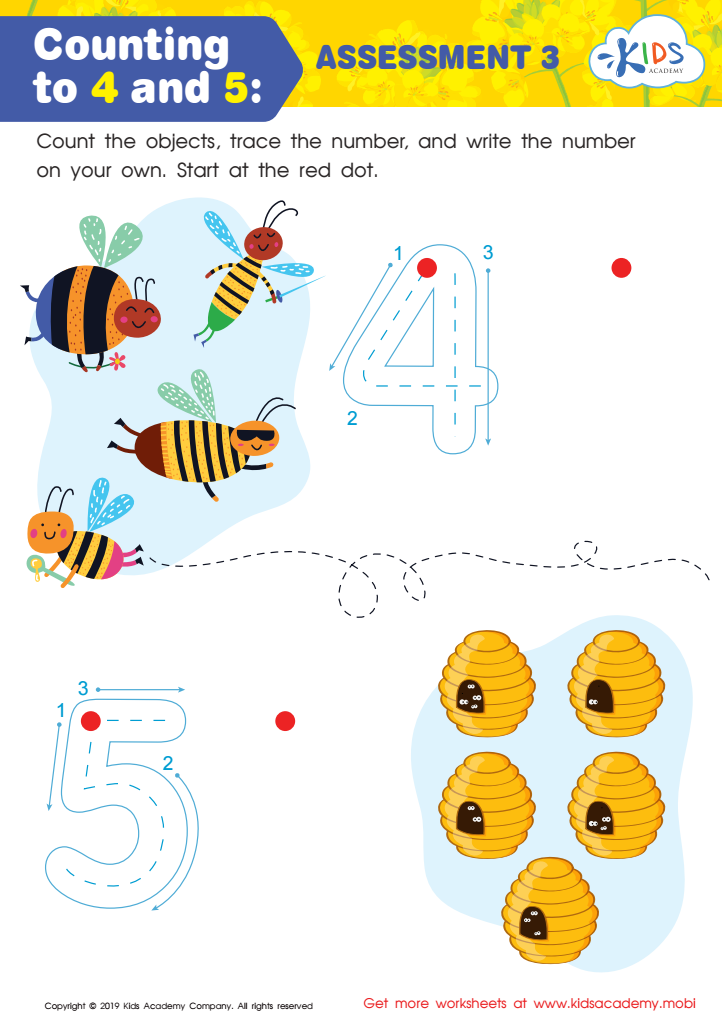

Counting to 4 and 5: Assessment 3 Worksheet
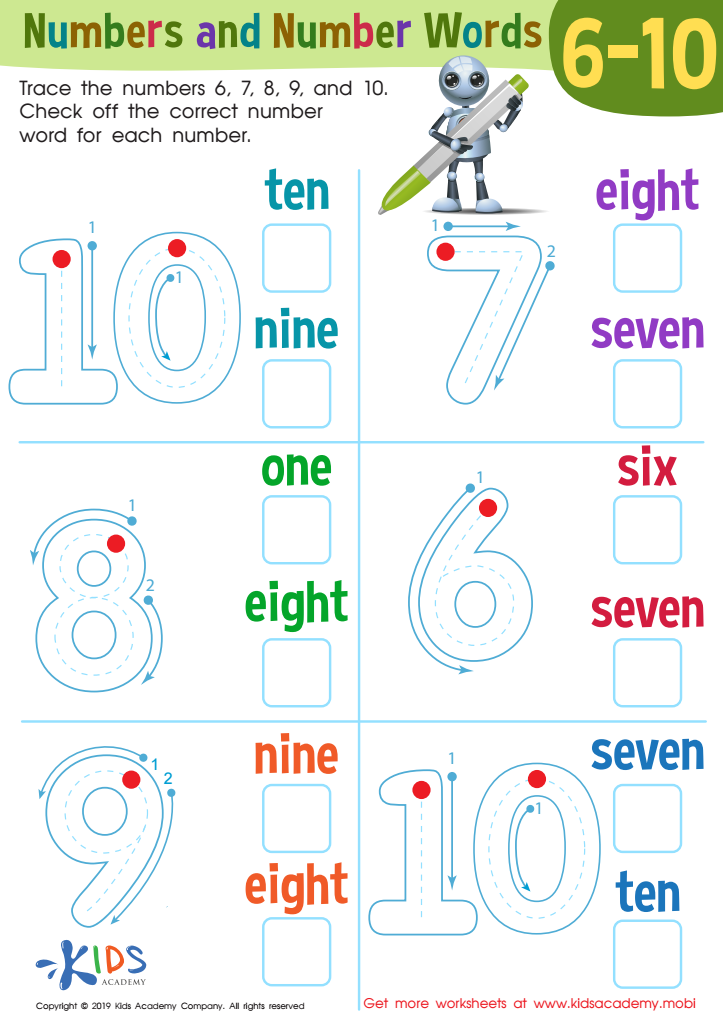

Numbers and Number Words 6–1 Worksheet
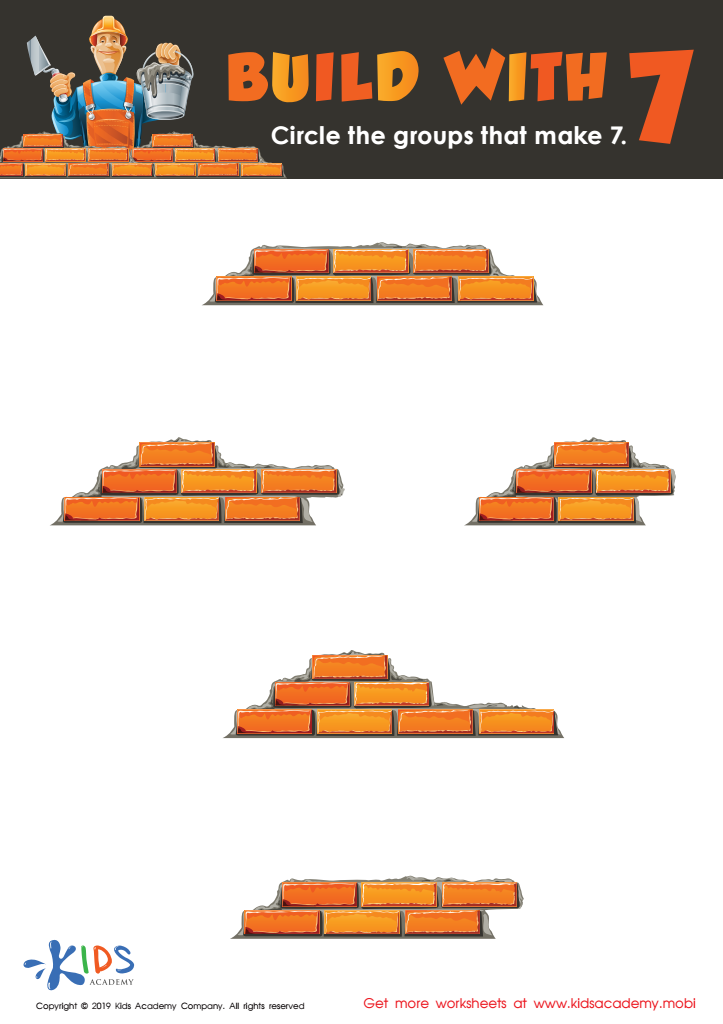

Build with 7 Worksheet
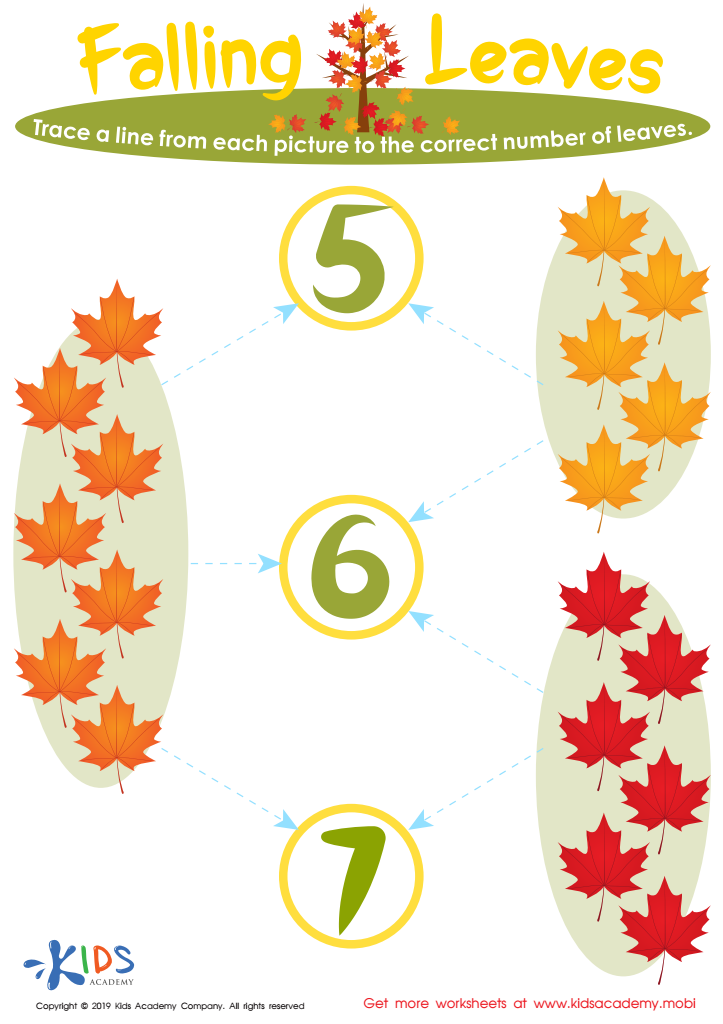

Falling Leaves Worksheet
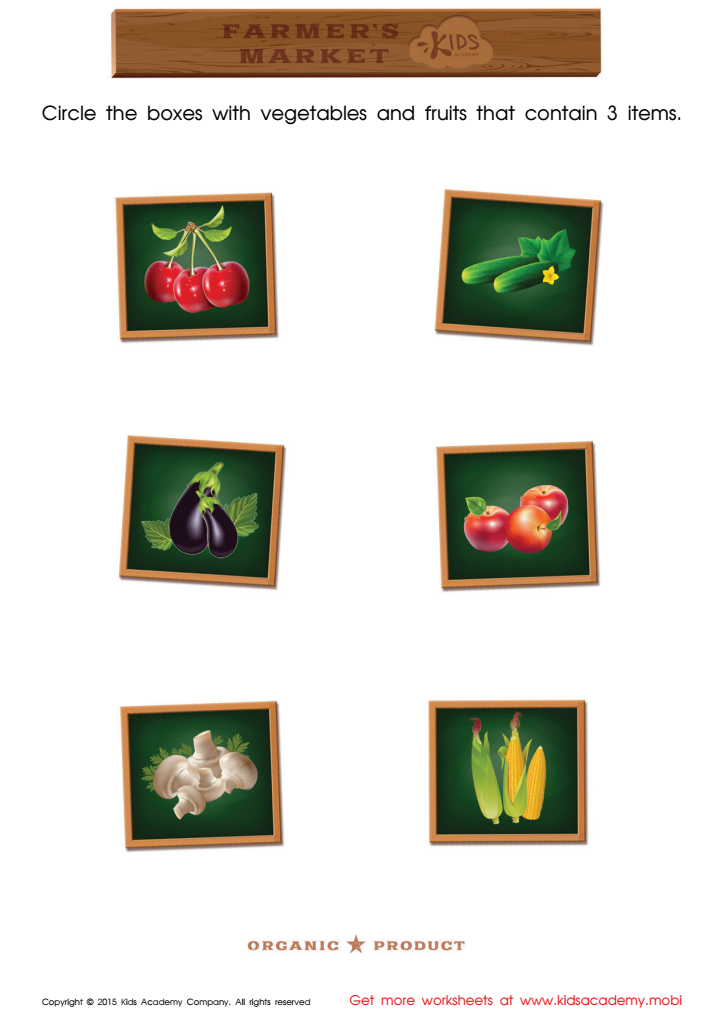

Count and Match Vegetables 1 – 5 Math Worksheet
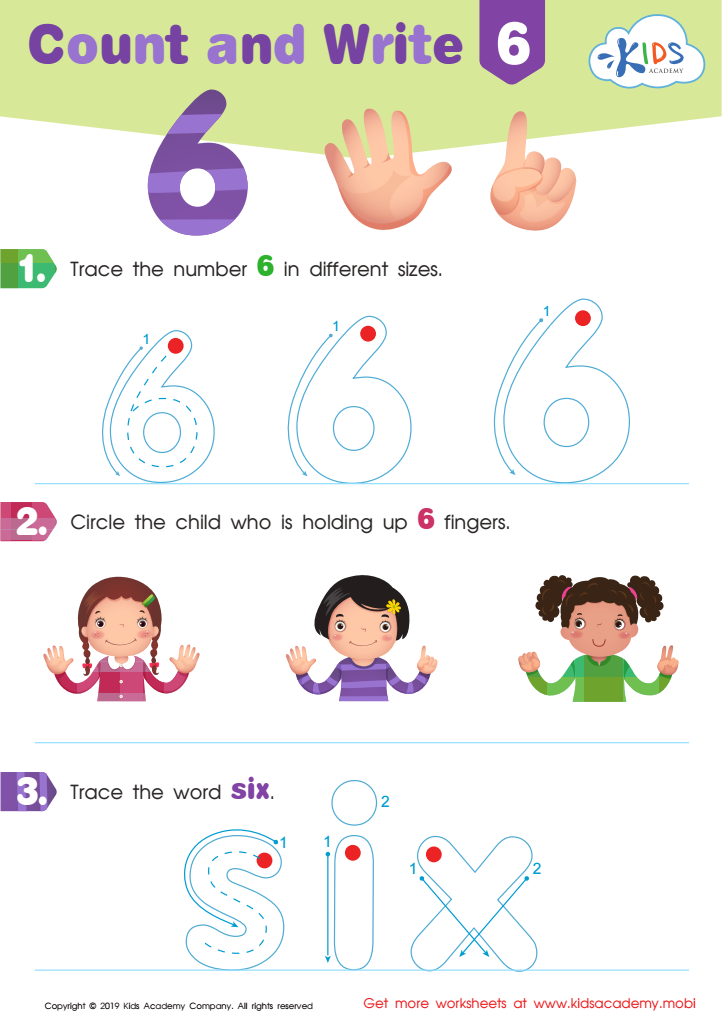

Count and Write 6 Worksheet
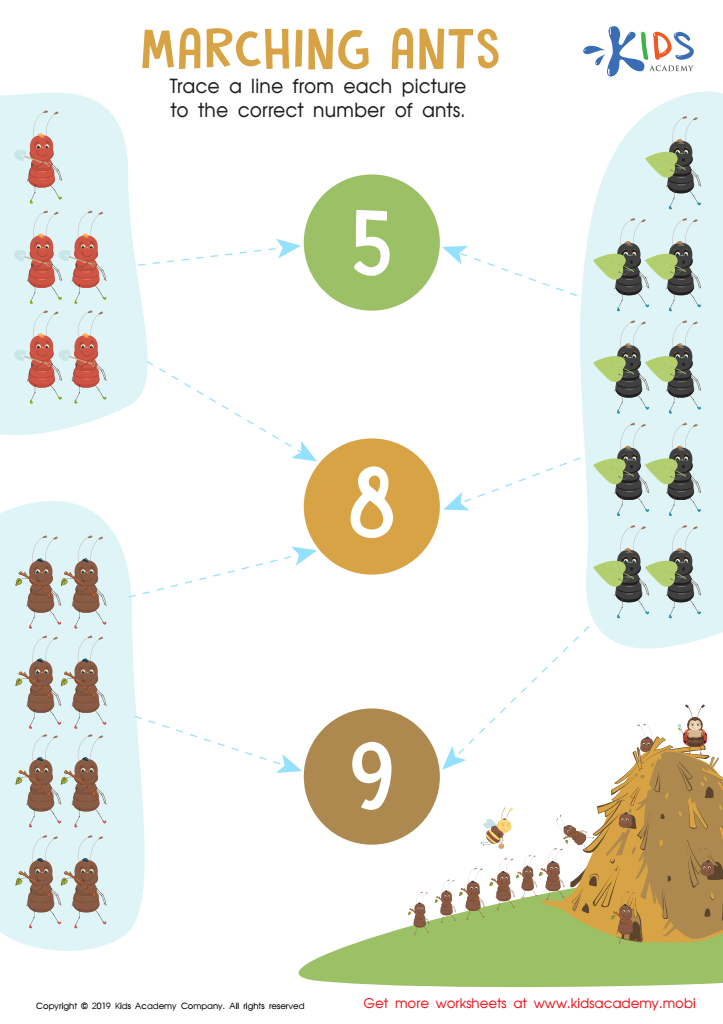

Marching Ants Worksheet
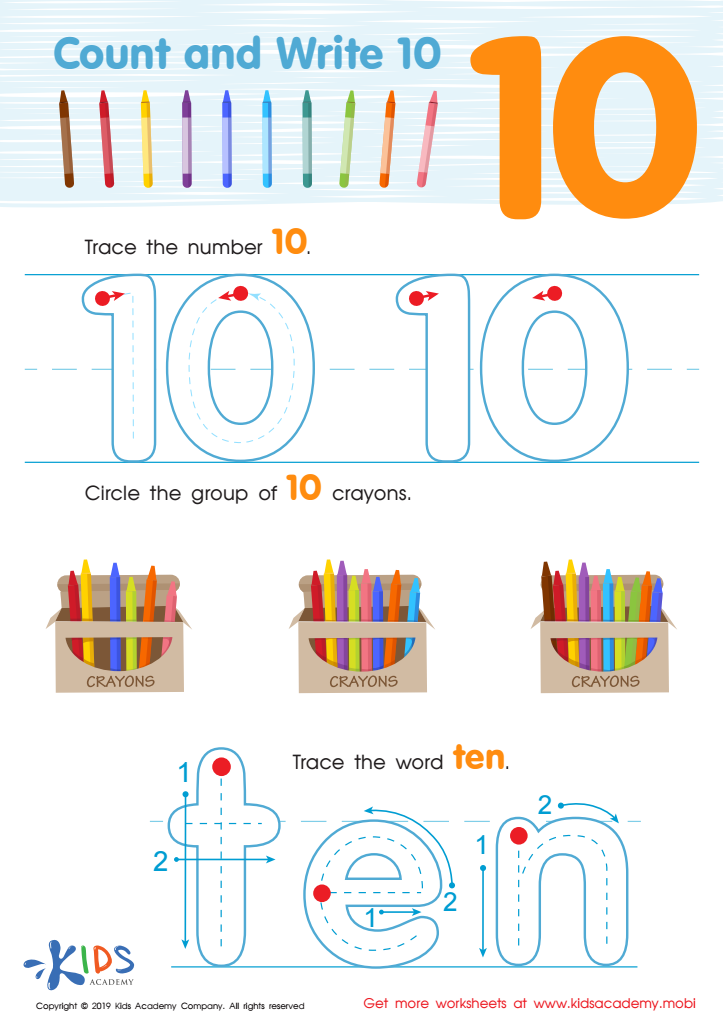

Count and Write 10 Worksheet
Number recognition for the numbers 0-10 is crucial for young children, as it forms the foundational block for future mathematical learning and cognitive development. Parents and teachers should prioritize this skill because it directly impacts a child's ability to perform basic arithmetic operations like addition, subtraction, multiplication, and division later on.
For children aged 3-9, understanding numbers gives them a sense of quantity and order, fostering critical thinking and problem-solving skills. It also makes them more comfortable in real-world situations where numbers are essential, like telling time, weighing objects, or recognizing money.
Additionally, early number recognition enhances a child’s confidence and academic performance. When children enter school and encounter age-appropriate mathematical tasks proudly, they're likely to succeed and remain engaged in learning. This sets off a positive feedback loop, fueling a lifelong positive attitude towards education and self-efficacy.
Engaging children in playful activities involving numbers, like counting games, number puzzles, and sorting exercises, also makes learning enjoyable. This is especially important as joy in learning in these formative years significantly predicts future academic success and a love for learning.
In essence, supporting number recognition not only strengthens math readiness but also encourages cognitive and emotional growth, ensuring children feel capable, curious, and confident.
 Assign to My Students
Assign to My Students









